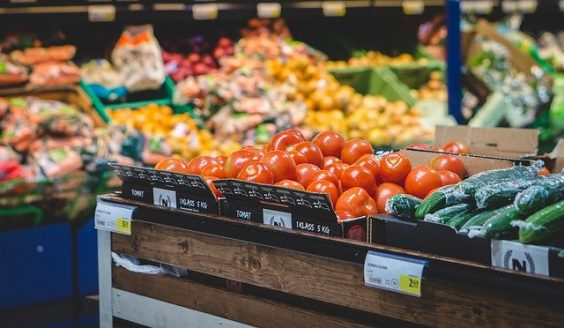
Call it a tale of two studies. One says we’re wasting more food than we even thought possible. Another is offering a counterintuitive solution – the best way to ensure we don’t throw out so many of our groceries, it says, is to build more grocery stores.
The first study is published in the journal PLOS One. Its authors estimate that consumers “discard a lot more food than widely believed” – twice as much, in fact, representing a third of all food available for human consumption.
The second study, published in the journal Manufacturing and Service Operations Management, suggests a simple solution – “the more stores you have, the lower food waste is going to be,” the study’s author, Cornell University professor Elena Belavina says.
If you do, say, one big stock-up grocery trip each week, you may overestimate how much food you need for the week and buy more than you can use. But if there are more grocery stores more convenient to where you live and work, you might not buy as much all at once, if you know it will be easy to drop in again later in the week if you need to.
“Households have to travel less to visit a store in denser markets, which incents more frequent trips to grocery stores and smaller basket sizes or household inventory levels,” the report states. “Smaller inventory levels imply less food waste as it is less likely that the inventory will expire before it is consumed.”
And they don’t have to be full-service grocery stores. With more dollar stores, drug stores and convenience stores adding a wider selection of groceries, they could help fill the need as well as big supermarkets can.
In a city like Chicago, for example, Belavina calculates that just 3 or 4 more stores within about a four square-mile area could result in up to 9% less wasted food in the area, and up to 4% less wasted money spent on groceries that end up being thrown away.
“So it’s a big win for the environment and a big win for consumers,” Belavina said in a Cornell University release announcing the study. With less food – particularly perishables – sitting at home, “there is a much lower likelihood that something will be spoiled, and we’ll actually be able to eat all of the stuff that we’ve purchased before its expiration date.”
There’s one drawback to her solution, though. While Belavina found that the more grocery stores there are, the less food we waste – she also found that the grocery stores themselves end up throwing more food away. With more options, and more competition, additional grocery stores can’t possibly sell everything they have to offer before it goes bad, unless they stock so little that they risk being out of whatever you’re looking for.
But Belavina says that’s a small price to pay – because we waste more food than grocery stores do. Ten times as much, in fact. So reducing our propensity to waste food would be more than enough to offset any increase in retail waste that might result.
Her solution may seem like a simple one, though in practice, it’s not easy to implement. Building hundreds or thousands of new grocery stores across the country is much easier said than done. So some stores are experimenting with a number of other ways to reduce waste. Some have come up with creative ways to offer discounts on about-to-expire food. Some have tried revising or even eliminating expiration dates so you don’t throw away food that’s still safe to eat. And some are even advocating for more stores that are solely dedicated to selling discounted, expired-but-still-edible food.
And, of course, there’s always grocery delivery services. If building more grocery stores isn’t an option, online ordering could be just as good a solution. “Any service that makes it more convenient and allows you to shop more frequently” can help, Belavina said.
Ultimately, she says the solution is simple. “To reduce food waste, essentially what households need to do is bring less groceries home.”
That would certainly save you money. And it helps save the planet at the same time – all the better.
Image source: Pixabay/TeroVesalainen










